NR: New version of last night's report
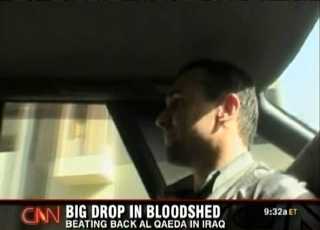
A different version of Michael's report from last night -- new video added and a completely new VO.
Length: 4:39
AC: "They know that they cannot return home unless Iraq can make peace with itself."
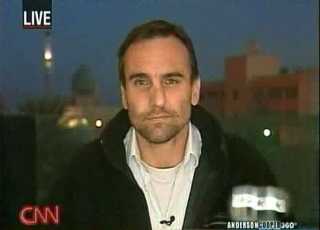
Michael went out to a Sunni neighborhood in Baghdad where al Qaeda death squads used to torture victims to death. He speaks with insurgent commanders who have now joined the "uprising" against al Qaeda, who are blunt in their evaluation of the situation: once American forces leave, their next uprising will be against the Iranian-backed Shia government we put in power.
Length: 6:10
IC: "At any given time, a matter of circumstance can change your fate."
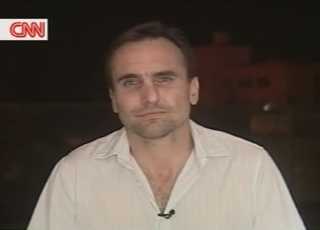
Over the weekend, Michael appeared on CNN/I's show "International Correspondents" to discuss the very troubling case of AP photographer Balil Hussein, who was arrested by US forces 19 months ago and is about to finally have his case heard before an Iraqi court. (Thanks to Délie for the clip!)
Length: 9:52
TWAW: Accommodation without reconciliation
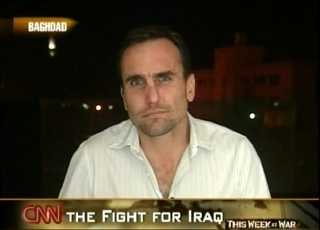
This week's discussion is whether the current lowering of violence in Iraq can be sustained. Michael is joined on the panel by Barbara Starr at the Pentagon and NYT correspondent Michael Gordon. Gordon says that "accommodation without reconciliation" is the new mantra of the Bush administration; Starr points out that their recent silence re the Maliki government is "deafening." And Michael talks at further length about the "people power" he mentioned earlier in the week: how everyday citizens are breaking down sectarian barriers street by street in order to regain some normality in their lives.
Length: 8:06
TSR: "The generals are warning that if there's no reconciliation by next summer, we may be looking for a new strategy."
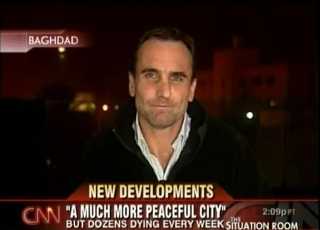
Wolf asks Michael whether the quieter-Baghdad stories are true, and whether it will last.
Length: 4:13
NR: "There are no American contractors involved in this incident."
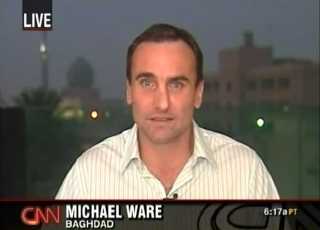
Heidi Collins asks Michael about yesterday's media reports that two American security contractors are being held by Iraqi police in connection with the wounding of an Iraqi civilian. Turns out those reports were incorrect.
Length: 2:52
AAM: "There has been phenominal change here in Iraq."
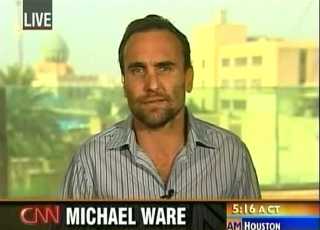
Michael talks to John Roberts about the impressive decrease in the number of attacks and civilian deaths in recent months. But will the politicians find a way to put the country back together again?
Length: 2:53
TWAW: "I see very little evidence right now of any real intent for reconcilliation."
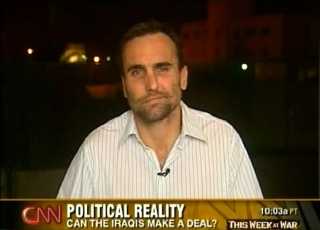
Michael discusses the political component of the puzzle that is Iraq, and the lack of progress towards finding any lasting solutions. As Tom Foreman points out, the surge is ending, with the first troop drawdowns announced this week. Tom is joined in the studio by Jamie McIntyre and Rend al-Rahim.
Length: 8:03
Q & A: Asharq Alawsat Newspaper
A terrific interview with Michael was posted today on the website of Asharq Alawsat newspaper.
The interview was conducted while he was in Paris last month.
Q & A with CNN's Michael Ware
14/11/2007
By Enaam Kajjah Ji in Paris
Q: How did the idea of going to Iraq emerge?
A: I went to Kurdistan at the beginning of 2003 before the military attack [on Iraq]. I got to Baghdad after the fall of Tikrit in April 2003. I’ve been there for four and a half years.
TWAW: "It truly is a blessing, the Iraq that I've returned to."
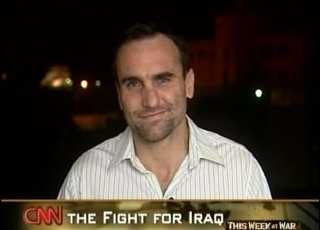
Michael is back on his Baghdad rooftop for the first time in almost two months, and he does return to an Iraq that has seen some definite progress made in the fight against insurgents and sectarian violence. The politicians, however, are still more concerned with protecting their turf than they are with protecting their citizens or constructing a new country.
Length: 6:25
